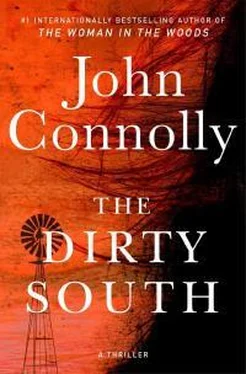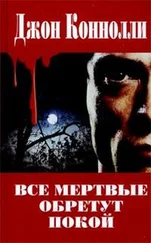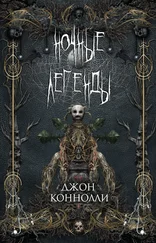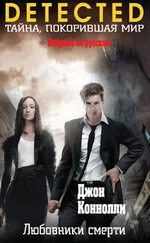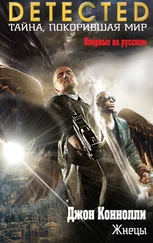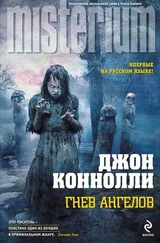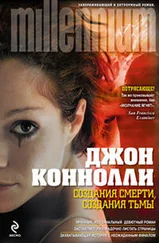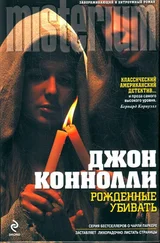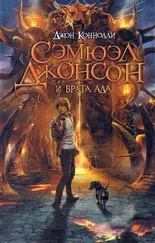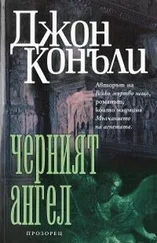‘Can what?’
‘Take your pick: can help, can advise. Or just can. I have nowhere else to go, except back to New York. All these cases have been dead ends so far. By staying here, there’s a chance that the whole effort may not prove pointless.’
‘I’m sorry,’ said Woolrich. ‘I’m still looking for similarities that might help. If you want me to stop …’
Parker took a deep breath.
‘No,’ he said. ‘And I apologize.’
‘For what?’
‘For being short with you ever since I arrived here tonight. I’m grateful for what you’ve done. It’s frustration on my part, and not only because the leads you sent me haven’t panned out. This whole county is toxic, and it’s as though the fumes are blinding me to something about these killings that I should be able to see.’
‘Tell me,’ said Woolrich. ‘I have nothing better to do than listen.’
So Parker told him. He went through everything he had seen, heard, and learned so far, right up to the attempted suicide of Reverend Nathan Pettle. He excluded only the tale of the truck that had followed him from Griffin’s house, because that would have involved mentioning the car that had intervened in the pursuit – or, more particularly, its occupants.
‘You’re right,’ said Woolrich, when Parker had finished. ‘This is one fucked-up county.’
‘Confirming the diagnosis doesn’t cure the disease.’
‘It sounds like you have a suspect, so the cure is to catch him.’
‘Hollis Ward as the chief suspect still doesn’t make sense to me. The Cades might have cut him loose after his conviction, but it’s a big step from being dismissed to killing women on their territory, especially after so much time has gone by. And from what I’ve learned of him, Ward wasn’t a man to keep a low profile, yet somehow he’s contrived to remain hidden for years.’
‘But this guy Rauls believes Ward might have murdered Estella Jackson,’ said Woolrich, ‘which means there’s precedent.’
‘Yes, but Jurel Cade raised the possibility of two killers, and the medical examiner, Dr Temple, who conducted the autopsy on Donna Lee Kernigan, didn’t dismiss it either, according to Chief Griffin.’
‘You always had a fondness for making situations more complicated than they need to be.’
‘This one was already complicated when I got here.’
‘Then look at it again, but from a different perspective,’ said Woolrich. ‘Why should these killings have recommenced now, so long after Estella Jackson’s murder?’
‘Kovas. There can be no other reason.’
‘You’re sure of that?’
‘I’m no longer sure about anything, but my gut says it’s down to Kovas. Donna Lee Kernigan’s body was left within sight of land earmarked for development by the company and owned by the Cades.’
‘But Patricia Hartley’s body was dumped elsewhere.’
‘Yet if Griffin is right, her remains were first left on federal land, because the killer hoped that would bring in outside agencies to investigate. Jurel Cade’s intervention meant that didn’t happen, so the killer had to try again, this time closer to the proposed Kovas site.’
‘Why not dump Kernigan on the site itself?’
‘It’s fenced off, and the Cades have already commenced sprucing it up in preparation for the laying of foundations, so the area is exposed. I’m surprised they haven’t already strung a ribbon from some trees and started sharpening a big pair of ceremonial scissors. Gaining access to the site wouldn’t have been impossible, or even difficult, but it would have required effort and risk. Leaving Kernigan’s body nearby would have been less trouble for almost the same reward.’
‘So someone wants to see the Kovas deal go up in black smoke?’ said Woolrich.
‘Which will ruin the Cades.’
‘And the entire county, as well as damaging the state.’
‘It feels personal,’ said Parker. ‘I think the Cades are the target.’
‘Okay, let’s go with it,’ said Woolrich. ‘If that’s the case, the identities of the victims themselves – their color, sex, age – are of no consequence. He picked them because they were easy, or came his way at the right time. Sometimes the personal is concealed by the impersonal, and vice versa.’
For a moment, Parker was distracted. Woolrich’s use of those words – personal and impersonal – brought him back to the hours and days following the murders of Susan and Jennifer. It was the question the police had asked, and that he had asked of himself: Was the choice of victims random or specific? Had their killer waited until Parker was away from the house before striking, or had he hoped to take Parker down as well? How had the killer chosen them? It wasn’t a crime of opportunity, but one that had required careful planning so the scene could be properly organized. Their killer had made a form of pietà out of their remains, leaving his daughter’s body stretched across her mother’s lap. But why target Susan and Jennifer? What if, as Woolrich was suggesting in the case of the Cargill killings, they had been selected only out of expediency? Yet the question remained: How had the killer of his family come to select them?
Sometimes the personal is concealed by the impersonal.
And vice versa.
But now Woolrich was speaking again, calling him back.
‘I’m curious,’ Woolrich was saying. ‘If a personal vendetta against the Cades is behind what’s happening, why not kill one or all of them and be done with it?’
Parker took this in. The question had not previously entered his mind. Why not kill one of the Cades? Why go to the trouble of trying to ruin them in this way?
‘He wants the Cade family to witness its own fall,’ he said at last.
‘And also, he isn’t roaming,’ said Woolrich. ‘He’s murdering and dumping in a defined territory, and taking his victims from the same locality.’
‘Meaning?’
‘Meaning it’s a good way to get caught. The real human predators keep moving.’
‘You think he doesn’t realize that?’ said Parker.
‘He may just be stupid, but this doesn’t strike me as the work of someone entirely lacking in intelligence.’
‘Unless it’s the point.’
‘That he wants to be caught?’
‘Eventually,’ said Parker. ‘Because whatever revelation his capture brings with it will ensure that everything – the Kovas deal, the Cades, all of it – is destroyed.’
He was close now, but still the final link dangled frustratingly beyond his grasp.
The bartender announced last call. Woolrich lifted his bottle and weighed it in his hand, as though debating whether he would be happier were it to become full again or remain empty. In the end, he decided on the latter and dropped some bills on the table.
‘I’m done,’ he said. ‘What about this Leonard Cresil?’
‘I’d hoped that he wasn’t going to be a problem in the short term,’ said Parker, remembering the benighted truck and its occupants. ‘I may have been mistaken.’
‘Did you confront him?’
‘Yes.’
‘Of course you did. I’m surprised you didn’t slap his face with a glove and challenge him to a duel.’
‘Absent the glove, that’s close to what went down.’
‘You’re not bereft of troubles as it is. Why ask for more?’
‘Cresil was about to crowd me. I wanted space to move.’
‘If you like, we can put a foot on his neck. Cresil’s time is coming. He’s running out of road, and he knows it.’
‘No,’ said Parker, ‘I have it in hand now.’
‘If you’re certain.’ Woolrich picked up his hat and jammed it on his head.
‘Where are you staying?’ said Parker.
‘Not here. Too many people in this county are winding up dead. I’ll start heading home and find somewhere to sleep along the way. I like driving in the dark. It’s more conducive to reflection.’
Читать дальше
